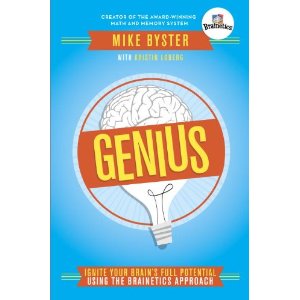TJEd and the “French Way”
May 14th, 2012 // 7:46 am @ Oliver DeMille
A book review of Druckerman’s Bringing up Bébé
 Many people around the world are discovering principles of great education that those using TJEd are already applying. The “conveyor belt” approach to learning has two big competitors in this second decade of the twenty-first century.
Many people around the world are discovering principles of great education that those using TJEd are already applying. The “conveyor belt” approach to learning has two big competitors in this second decade of the twenty-first century.
I Can Conform Better Than You Can
The first can be summed up as, “Don’t just participate in the conveyor belt — excel at it!” This is the idea widely popularized in the Tiger Mom book[i] and debate that swept through American education circles during the past two years.
The second approach, the one adopted by Montessori, TJEd and other highly-effective educational viewpoints, recently gained another proponent. In the enjoyable book Bringing Up Bébé by Pamela Druckerman, we learn about core principles the author observed in the parenting philosophy and style of French parents. Those familiar with TJEd will hear a familiar ring to these “French” techniques, and all of us can learn from these ideas.
 Les Sept Clés
Les Sept Clés
For example, according to Druckerman, here are some of the “secrets” of effective parenting widely utilized in the French culture:
- A focus on parenting as a pleasure rather than a chore or grind
- An emphasis on helping children experience growing up as a joy rather than a job
- Taking it slow and enjoying the journey rather than rushing to stay ahead of the neighbors’ kids or meet standards set by unnamed experts
- “Establishing firm but gentle authority…”
- “Favoring creative play over lots of lessons…”
- “Never letting a child become the center of your existence”[ii]
- Realizing that children aren’t “projects for their parents to perfect. They are separate and capable, with their own tastes…”[iii]
“French parents just don’t seem so anxious for their kids to get head starts,” Druckerman tells us, but rather help them experience quality in growing up and learning.[iv] The focus is more on the current goal of being happy children and the end goal of becoming well-adjusted adults than on striving for adult goals as toddlers and young children.
Throughout the book, those using TJEd will find familiar themes couched in an evocative European experience. The following ideas show up repeatedly and in new and interesting ways:
- Classics
- Mentors
- Structure time, not content
- You, not them
- Simple, not complex
- Quality, not conformity
- Secure, not stressed
- Teach to the appropriate phase, not one-size-fits-all education
- Personalize, instead of joining the conveyor belt
Above all, Druckerman highlights the French emphasis on wisdom[iv] (rather than grades, gold stars, or other external accolades) as the central purpose of learning — and for that matter, of family and life.
The fact that Druckerman is an American who learned these principles while living in France adds to the flavor—it is practical in the “American” sort of way while being idealistic and even artistic in the French way. In short, it’s a great read, even if you don’t use TJEd but especially if you do!
[ii] See “Books: Bringing up Bébé by Pamela Druckerman,” Reviewed by Kim Hubbard, People, February 20,2012.
[iii] Pamela Druckerman, Bringing up Bébé.
[iv] Ibid.
Category : Blog &Book Reviews &Education &Family &Featured
Predicting Elections
April 18th, 2012 // 6:25 pm @ Oliver DeMille
There are various methods and matrices for predicting elections, none of them infallible.
But one does come pretty close.
When an incumbent president is running for reelection, the growth rate of discretionary income citizens have during the first two quarters of the election year always accurately predicts the election.
If it increases during the first six months of the election year, the incumbent is reelected.
If not, he isn’t.
There are no exceptions to this rule in recent American history, and the rate of discretionary income so far in 2012 is decreasing. Moreover, most people feel it is seriously decreasing.
For example, though we’ve seen over two years of slight economic growth, which in technical terms means we are in a recovery, over 70% of Americans polled in April 2012 say we are still in recession.
Their discretionary income is down, and they feel it.
This is bad or good news—depending on who you want to win the presidential election in November.
Certainly the race promises to be a tough one where simple statistics won’t sway everything.
But there has yet to be an exception to this formula.
There is always the potential of some major surprise—positive or negative—in world affairs or economic events.
And even some predictable surprises are possible, like a shocking Supreme Court decision on health care, economic collapse of another European country, massive increases—or reductions—in oil prices, major mistakes by one of the candidates, a history-changing international incident, or something else.
In short, “It’s the economy, stupid…unless something unexpected happens.”
Or, maybe, it’s the economy regardless of what happens.
Because whatever happens or doesn’t happen, when most households feel their pocketbooks shrinking they want change, and the closer we get to an election, the more drastically things would have to improve in order to change their minds.
Or their votes.
Common wisdom says it’s way too early to predict who will win the 2012 race for the White House.
The thing about statistics is that they can tell us a lot about the past but are seldom deemed reliable in foretelling the future.
Calculations and forecasts have proven a poor substitute for patience.
November 6 (or whenever we actually find out for sure who won) isn’t that far away.
Still, at least a few Beltway insiders will tell you (with a smile or frown, depending on which side of the aisle they support) we are in an election year and most households are feeling the pressures of less discretionary income…
If this turns out to be the reality in yet another presidential election, as tight as the 2012 race seems to be, it will make a believer out of me.
Time will tell.
***********************************
 Oliver DeMille is the co-founder of the Center for Social Leadership, and a co-creator of Thomas Jefferson Education.
Oliver DeMille is the co-founder of the Center for Social Leadership, and a co-creator of Thomas Jefferson Education.
He is the co-author of New York Times, Wall Street Journal and USA Today bestseller LeaderShift, and author of A Thomas Jefferson Education: Teaching a Generation of Leaders for the 21st Century, and The Coming Aristocracy: Education & the Future of Freedom.
Oliver is dedicated to promoting freedom through leadership education. He and his wife Rachel are raising their eight children in Cedar City, Utah.
Category : Blog &Current Events &Featured &Government &Politics &Uncategorized
Bunch of Amateurs by Jack Hitt
April 10th, 2012 // 8:54 pm @ Oliver DeMille
5 stars
Reviewed by Oliver DeMille
Alexis de Tocqueville wrote in Democracy in America that nearly all Americans are Cartesians, even though few of them know that a “Cartesian” is one who follows the philosophy of Rene Descartes.
Cartesians are famous for following the maxim, “I think, therefore I am,” which translates into little faith in experts and a deep belief in the ability of one’s own mind to figure things out.
In short, Tocqueville was saying that most Americans would rather think on their own, look over all sides of things and draw their own conclusions than give credence to the so-called “authority” of the experts.
One side of this coin is a trust in one’s own mind, thoughts and abilities, and the other side is a deeply imbedded mistrust of experts, officials, politicians, bureaucrats or anyone else claiming any kind of superiority, credibility, class standing, celebrity or special credentials.
The American founders wrote this philosophy right into our founding documents when they outlawed titles of nobility.
In a new book, Bunch of Amateurs, author Jack Hitt writes that this spirit of self-confident amateurism is central to the American character and that indeed, “the amateur’s dream is the American Dream.”
This is an enjoyable book that reminded me a little of Malcolm Gladwell’s Outliers or Bobos in Paradise by David Brooks, and a lot of The Talent Code by Daniel Coyle.
It is an interesting addition to the important genre of understanding the American character.
For those who enjoy this kind of societal analysis, Bunch of Amateurs is an enjoyable read.
I didn’t agree with all of Hitt’s points, but this just added spice to the debate.
I loved the inclusion of the history of Franklin and Adams and how their interactions provide an iconic look into the American character.
The juxtaposition of these two founders with modern commentators Jon Steward and Stephen Colbert is worth the price of the book.
I am a longtime fan of social commentary, and for me Bunch of Amateurs is like a mixture of Daniel Pink’s A Whole New Mind, Tribes by Seth Godin and Bowling Alone by Robert Putnam.
In places, the writing reminded me of books by Steven Pinker, and in other places of Roy H. Williams—both are excellent writers.
If I was only going to read one book of this kind and on this subject area, it would be the brilliant book Rascal by Chris Brady.
Bunch of Amateurs is a quality addition to this important conversation about the American character and, by extension, its emerging future.
I highly recommend it.
***********************************
 Oliver DeMille is the co-founder of the Center for Social Leadership, and a co-creator of Thomas Jefferson Education.
Oliver DeMille is the co-founder of the Center for Social Leadership, and a co-creator of Thomas Jefferson Education.
He is the co-author of New York Times, Wall Street Journal and USA Today bestseller LeaderShift, and author of A Thomas Jefferson Education: Teaching a Generation of Leaders for the 21st Century, and The Coming Aristocracy: Education & the Future of Freedom.
Oliver is dedicated to promoting freedom through leadership education. He and his wife Rachel are raising their eight children in Cedar City, Utah.
Category : Blog &Book Reviews &Citizenship &Leadership
The Summer of 2012
April 10th, 2012 // 8:37 pm @ Oliver DeMille
What to Expect as the Year Heats Up
The temperatures are rising for summer, not just literally but also in politics, economics and culture.
There are several important trends that are sure to influence the months ahead, and indeed the summer of 2012 promises to be both historic and memorable.
Each of us should consider these significant trends and keep an eye on how they develop:
1. There is a great debate occurring in the United States about the proper role of government.
One side argues that the government should do whatever it can to make a positive difference in the world, the other that it must be limited to its constitutional roles and leave everything else to the private sector.
Both believe in an important role for government, but disagree on its scope and especially its scale.
This debate is making its way through the entire 2012 election, but it is actually bigger than politics.
It is cultural, and it literally permeates our societal views on economics, education, health care, business, transportation, information, technology, entertainment and beyond.
The disagreement gets to the very heart of how we define freedom in our society.
In this debate about the ideal role of government—especially the federal government—the two big parties are widely divided.
The summer contest will cause more Americans to consider this great question: What is the proper role of government?
Is it to do what the Constitution says, or to do whatever it deems desirable at any given time?
2. Between these two sides, independents find themselves frequently frustrated with the ideological stances of both major parties.
Independents want the government to do better in some things and to be more limited in others.
Independents are less of a bloc than either conservatives or progressives, so it isn’t clear how they will vote.
3. There are three major branches of the Republican Party: the Establishment (which often calls itself the Rockefeller Republicans and is labeled Nixon Republicans by its opponents), the Tea Party or Right Wing populists, and the Reaganites or old-style conservatives.
Mixed into these is a fourth group, the neo-cons, who emphasize America’s role as the world’s sole superpower.
In the 2012 political environment, the one person who speaks with credibility to all four groups in the Republican community is Representative Paul Ryan.
What this means for the future is unclear, but at this point Ryan is the most uniting figure in the GOP.
Moreover, Ryan is credible to a large number of independents. Senator Marco Rubio is also credible to all these groups as well as many independents.
Expect to hear more from these two men over the course of the summer and well into the fall.
4. While the Democratic Party is also divided into at least three major groups (liberals, progressives and proponents of various—and at time conflicting—special interests), all three are united behind President Obama in the 2012 election.
Many non-Democrats may find it surprising that the liberal wing of the Democratic Party is less enthusiastic about President Obama than the progressives and many proponents of special interests.
The reality is that the President has governed more as a progressive than a liberal, and is therefore seen as centrist by many on the Left.
Again, this is a shock to many who get the majority of their news from conservative sources.
The Obama campaign must choose whether to swing left or to the center in the 2012 election, or find some way to appeal to both Left and Center.
This will be a major theme of the summer. So far the campaign has pivoted left and emphasized the message of class division.
It remains to be seen whether this will be the gist of the campaign or simply a feint to be followed by renewed centrism.
5. The campaign of 2012 is being framed by both sides as an attack on each other.
President Obama’s major message isn’t a vision of the future but rather an attack on what Republicans have done, what the Ryan budget means for America, and how we must avoid a return to what he calls the failed Republican policies of the Bush Administration.
So far the Republican message has followed the same playbook: it isn’t yet about a vision of the future but instead emphasizes the failures of the Obama Administration.
Americans are notoriously focused on the future (David Brooks called “Futurism” the American religion), and the winning candidate may well be the one who effectively connects with American voters on a shared vision for the future.
If this does come, it likely won’t happen until fall. The summer may shape up to be deeply negative—at least in political circles.
Attack ads have worked so far in the election, and this will likely continue.
The sooner a top candidate can effectively pivot to a moving positive view of the future, the more support such a candidate is likely to garner from independents.
6. This summer’s Supreme Court decision on Health Care may turn out to be bad for President Obama’s campaign.
If the Court upholds the law, the Republicans will make it a rallying point for the November elections.
If the Court strikes it down, the Obama Administration will probably look vulnerable and ineffective.
If the Court rules the entire law unconstitutional, it could hurt the Republicans as twenty-somethings are taken off their parents’ insurance and other changes occur.
But if the Court simply strikes down the individual mandate, it will most likely hurt Democratic candidates.
7. The Ryan budget may be the crystallizing division in the 2012 debate and election.
Likely most Democrats will be against it, most Republicans for it, and independents will determine America’s future as they analyze and decide whether or not to support it.
Every American should study this budget.
8. Iran… Need I say more? What happens in the Middle East could have drastic impact on fuel prices, inflation and employment rates, all of which will significantly influence the year ahead.
9. Debt crisis? Credit rating? Inflation? Jobs? Credit availability? Small business regulations? Economic upturn or recession? It is unclear where the economy will go in the coming months.
Welcome to the summer of 2012. Temperatures are rising, and the months ahead will make a real difference in America’s future.
In this sputtering economy, will most Americans enjoy a summer of vacations and good times or will a growing frustration heat up as we approach election day?
Whatever happens this fall, our summer will have lasting impact on the history of the United States and our world.
***********************************
 Oliver DeMille is the co-founder of the Center for Social Leadership, and a co-creator of Thomas Jefferson Education.
Oliver DeMille is the co-founder of the Center for Social Leadership, and a co-creator of Thomas Jefferson Education.
He is the co-author of New York Times, Wall Street Journal and USA Today bestseller LeaderShift, and author of A Thomas Jefferson Education: Teaching a Generation of Leaders for the 21st Century, and The Coming Aristocracy: Education & the Future of Freedom.
Oliver is dedicated to promoting freedom through leadership education. He and his wife Rachel are raising their eight children in Cedar City, Utah.
Category : Blog &Citizenship &Constitution &Current Events &Featured &Government &Independents &Leadership &Politics
A Truly Excellent Book on Genius and How to Develop It!
April 3rd, 2012 // 9:41 pm @ Oliver DeMille
Genius by Mike Byster
5 Stars
Reviewed by Oliver DeMille
I love it when a plan comes together. Okay, it isn’t really a plan. But I still love it when I read a book that says what we’ve been saying for years in Leadership Education.
I enjoy disagreeing with books too, which is why I love to talk about Lord of the Flies or 1984 with people who have read them repeatedly and given them a lot of thought.
But today I read a book that agreed with much of what I wrote about in A Thomas Jefferson Education and that I’ve been speaking and writing about for a long time.
I had the same experience when I read The Talent Code by Daniel Coyle, Unschooling Rules by Clark Aldrich, The Global Achievement Gap by Tony Wagner, and A Whole New Mind by Daniel Pink.
Today’s book was Genius by Mike Byster.
Those who have followed Leadership Education and Thomas Jefferson Education (TJEd) know that we have long taught that all people on the planet have genius within them, and that it is a fundamental purpose of good education to help them find and develop their genius.
Byster goes a step further, by teaching the reader how to develop one’s areas of inner genius, and the result is a truly excellent book.
Those familiar with Leadership Education will resonate with several recurring themes.
For example, Byster argues that a major problem with modern education is that we put too much emphasis on teaching subjects rather than helping students learn how to effectively learn and think.
He quotes Albert Einstein and Alvin Toffler, respectively: “I never teach my pupils; I only attempt to provide the conditions in which they can learn,” and “The illiterate of the 21st Century will not be those who cannot read and write, but those who cannot learn, unlearn, and relearn.”
Most significantly, at least for me, Byster outlines a plan or pattern of teaching and learning genius.
Again, many of the themes are familiar to me, but they are couched in new ways and combined with new concepts, examples and ideas that make the book an instant classic for me. I’ll read it again and again.
Byster teaches the following “Six Skills of A Genius,” and gives suggestions and exercises for mastering them:
- Focus
- Concentration
- “Retaining Massive Amounts of Information Without ‘Memorizing’” (This is accomplished by making learning fun, exciting and otherwise engaging one’s own love of learning and areas of passionate interest.)
- Thinking Outside the Box
- Organization (This includes finding patterns in things and reorganizing information to better intersect with one’s own mind and world.)
- Forgetting
What a great outline. I especially like the last one, which reminds me of counsel I often gave to freshmen and sophomores: “Only take notes on things you deeply care about and want to remember, rather than just summarizing whatever lecture you attend.”
Not trying to remember things you don’t want to recall is a vital part of remembering the important things.
Again, this book resonated with me in so many ways that I was excited to go back and read it again.
The first time I just read it through, then I spent the evening and long into the night reading it a second time and taking copious notes.
Maybe the most enjoyable thing about this book is that many of the exercises are focused on math.
I hope that doesn’t stop anybody from reading it, because it was some of the most enjoyable and downright fun math I’ve done since…well, ever.
This was a very entertaining, pleasurable, amusing book. I learned so much! I recommend it everyone, whether you know anything about TJEd or not.
For those with a background in Leadership Education, I think you’ll love this book as much as I did. Principles of truth are principles of truth, after all, and this book is full of such principles.
I add it to A Beginner’s Guide to Constructing the Universe by Michael Schneider as one of my all-time favorite books on math, and also as one of the best books on “Leadership Education.”
Read it, love it, have fun with it. Enjoy!
***********************************
 Oliver DeMille is the co-founder of the Center for Social Leadership, and a co-creator of Thomas Jefferson Education.
Oliver DeMille is the co-founder of the Center for Social Leadership, and a co-creator of Thomas Jefferson Education.
He is the co-author of New York Times, Wall Street Journal and USA Today bestseller LeaderShift, and author of A Thomas Jefferson Education: Teaching a Generation of Leaders for the 21st Century, and The Coming Aristocracy: Education & the Future of Freedom.
Oliver is dedicated to promoting freedom through leadership education. He and his wife Rachel are raising their eight children in Cedar City, Utah.
Category : Blog &Book Reviews &Education &Featured &Leadership &Mission











